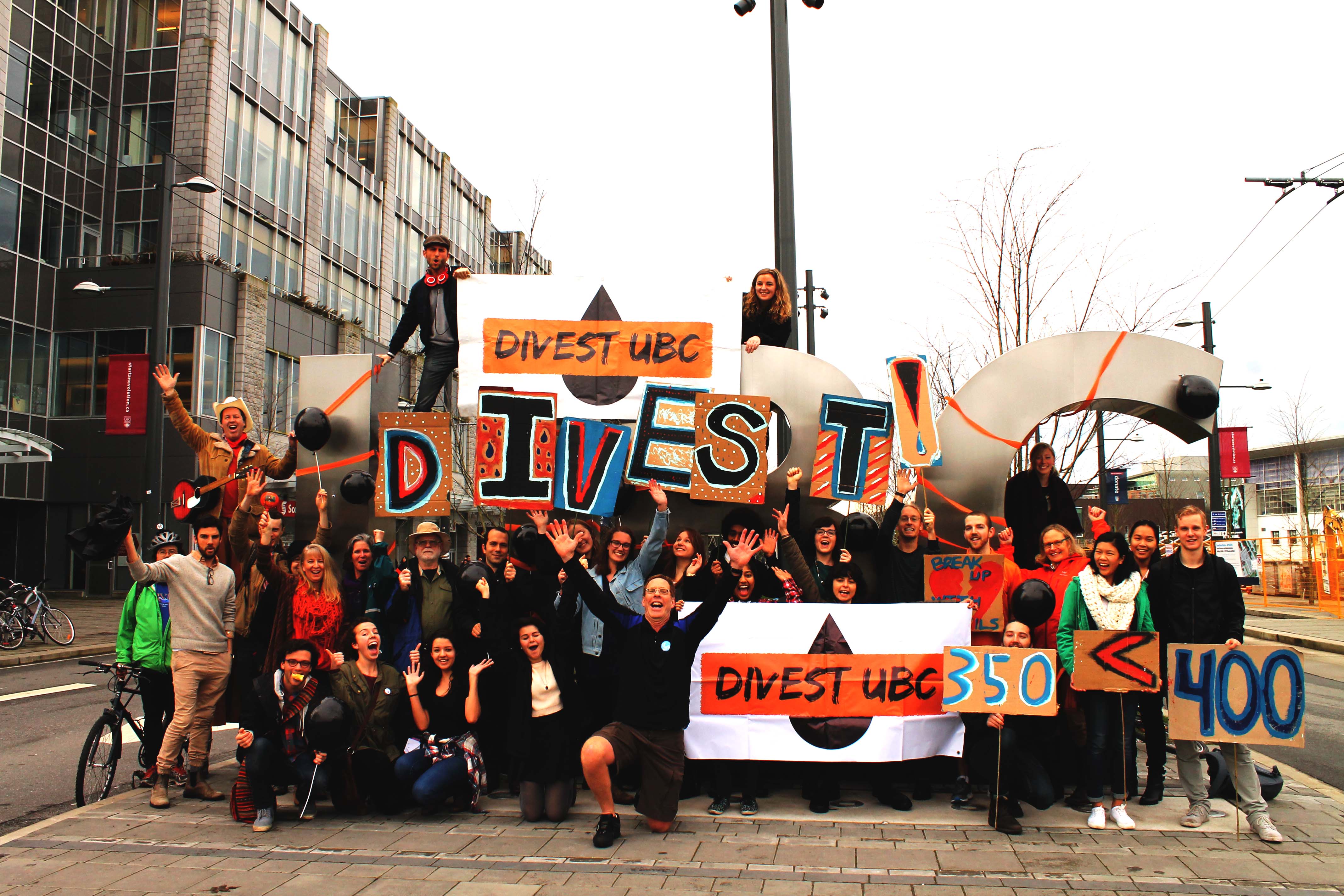Like this article? rabble is reader-supported journalism. Chip in to keep stories like these coming.
For divestment advocates, this week has not come as a roaring success. A special committee at The University of British Columbia has voted not to drop carbon-heavy investments from its investment portfolio, choosing instead to retain its approximate $85 million in oil and gas holdings.
To many UBC students and faculty, the move comes as a deep disappointment. In 2015, two referendums showed students and faculty were largely in favour of divestment, with 62 and 77 per cent respectively voting in favour.
“The committee’s decision is disappointing,” says Alex Hemingway, one of the organizers of Divest UBC. “From our perspective, I think it’s irresponsible. We’re at a point in this country –and on this planet– where we need strong action on climate change right now. We need action that’s proportionate to the scale and urgency of the problem, and we’re not getting it.”
In a statement to The Globe and Mail, Philip Steenkamp, UBC’s vice-president of external relations and communications, cited fiduciary duty to endowment donors as a key reason behind the decision.
“As a result of a detailed review and third-party analysis, the committee concluded that the [divesting] proposal would not necessarily meet the objectives of addressing climate change or influencing corporate behaviour,” he said. “They also concluded that, at this time, it would not be consistent with the board’s fiduciary obligation to endowment donors.”
According to Hemingway, this rationale exemplifies a preconceived bias –one that doesn’t necessarily stand up to current financial evidence.
“To cite this as a piece of evidence against divestment is very audacious at this point in time,” says Hemingway. “They’re claiming that there’s risk for the investments, but they haven’t provided any evidence.”
In December, a report released by Corporate Knights, a Canadian research company, found that some of the world’s largest pension plans have lost billions by not selling off their carbon-based investments in favour of clean energy stocks. Included among them was the University of Toronto, which reportedly lost $550 million by not divesting in 2013.
At least in Toronto it seems divestment talks are moving ahead. According to Hemingway, the university has been providing a positive counterexample to the events unfolding at UBC.
“They convened a large and diverse committee to consider divestment, and that committee actually heard from stakeholders, held consultations, and had a much wider range of relevant experts involved in the process,” he says. “Here, we haven’t been allowed to speak with the committee while it’s deliberating –not until today, when it had already made its decision.”
Students, faculty and staff from more than thirty universities are calling for their schools to trade in their carbon-heavy investments for more climate-friendly alternatives. It’s s a move that would impact hundreds of millions of dollars in pensions and endowments, but divestment’s considerable international success, no Canadian university has fully committed.
As part of this week’s decision, the committee at UBC announced the creation of a $10 million low carbon fund. According to a statement from the university, the fund will meet “best practices for environmental, social and governance (ESG) factors” and “provide an alternative endowment investment choice for past or future donors.”
It’s not the first time such a measure has been employed. In December 2014, Concordia University became the first school to pursue partial divestment. It launched a $5 million sustainable fund, which functions as part of its $100 million endowment.
To Hemingway, UBC’s low carbon fund simply isn’t good enough. “It’s very short on detail right now,” he says. “Essentially, we’re talking about $10 million dollars out of a $1.4 billion dollar endowment fund, so this is really emblematic of the half measures and hand waving that make up these inadequate responses to climate change.”
“We need strong, decisive action.”
Like this article? rabble is reader-supported journalism. Chip in to keep stories like these coming.



